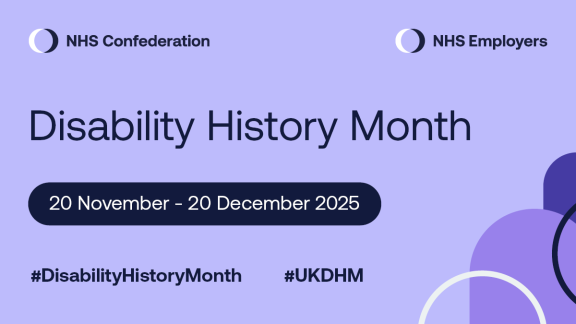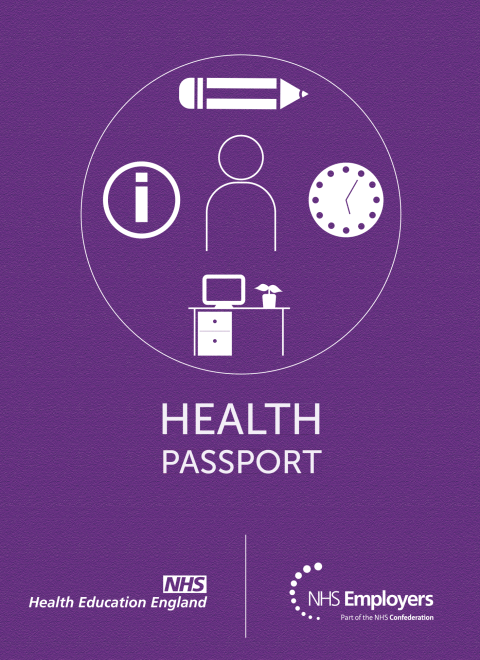Using the Empowerment Passport to support disabled health learners

Overview
A tripartite group, which included NHS England, NHS Employers and the former Health Education England, supported a rapid review of the Empowerment Passport (EP). The EP is a fully portable and secure digital tool, that travels with learners between educational institutions, NHS placements, preceptorships and into their professional roles in the NHS.
The EP enables health learners, trainees and apprentices to self-record and share their support and adjustment needs.
The review was part of a wider policy programme to gather economic evidence and data on interventions aimed at addressing attrition and driving up retention. It aimed to support the business case for tools like the EP passport being adapted and adopted more widely.
Key benefits and outcomes
- 67 per cent of participants believed that the passport could make it easier for them to disclose their health conditions or disabilities.
- All participants valued the portability of the EP, confirming its potential for a seamless transition and utilisation across different organisations.
- The economic impact assessment yielded a positive return on investment.
What the group faced
The overarching programme objective was to review the EP and test the interventions adapted for disabled health learners; including trainee doctors, apprentices and undergraduates preparing to enter the NHS in regulated professional roles.
The focus was on supporting better transition into the workforce, as well as driving down health learner attrition and securing the NHS pipeline through better retention.
What the group did
Using Plan, Do, Study, Act (PDSA) methodology, the team looked at a range of interventions, including the EP.
The EP aims to increase awareness, confidence, and accessibility while enabling NHS based supervisors and managers to offer support and deliver our NHS People Promise.
The EP has been developed by and with input from neurodivergent health learners, occupational health professionals and NHS managers, to support a smooth transition of learners and trainees into the workforce.
The London School of Economics conducted an independent economic impact assessment of the overarching programme. As a starting point, this took data which shows that disabled trainees have lower retention rates than non-disabled trainees.
The assessment focussed on key impacts, including improvement in learner completion rates, together with the improvement in NHS early career retention rates. The potential for a reduction in the incidence of taking disruptive breaks during postgraduate training was also considered. The trial included the use of a survey, together with interviews.
The full report of the Empowerment Passport rapid review was completed in March 2023.
Emergent benefits and outcomes
The analysis of user feedback paints an encouraging picture of the EP’s potential to make a meaningful impact in the lives of individuals with long-term conditions or who are disabled. As the EP is a secure cloud based digital tool, it also reduced the potential duplication of information and repetitive form-filling, reported by users of paper-based passports. Repetition of information giving, as health learners transitioned between placements, rotations and institutions is often cited as a key frustration.
The review highlighted areas that end users found beneficial and valued, including digitally secure tools, tools that were entirely paperless, tools that considered privacy concerns and the ability to filter or better contextualise the information.
- 67 per cent of participants believed that the passport could make it easier for them to disclose their health conditions or disabilities.
- 74 per cent of trainees received reasonable adjustment support.
- Respondents highlighted the duplication of information and repetitive form-filling as users transitioned between institutions.
- 67 per cent of participants found the EP Action Plan useful, emphasising its practicality and effectiveness in guiding individuals through their journeys.
- All participants valued the portability of the EP, confirming its potential for a seamless transition and utilisation across different organisations.
- 25 per cent of participants had initial concerns around the security of their personal information within the EP. The EP is a cloud-based tool with access controlled by the individual user.
- 8 per cent had some issues using EP. It is therefore essential to make use of the opportunity to tailor the EP for local and individual use; to enhance user experience and ensure optimal usability and accessibility for all.
- The economic impact assessment, undertaken by London Economics found the interventions that formed part of a programme to support disabled health learners, yielded a positive return on investment.
Takeaway Tips
Engage with your disabled staff network - they will be your champions for any work on improving reasonable adjustments.
- Consider giving staff the option of adopting the EP as part of your wider equality, diversity and inclusion strategy and/or wellbeing strategy.
- Promote awareness of the EP or similar digital tools, in your recruitment material and through your induction programme.
Further information
Review the results of this year’s national survey on workplace adjustments, conducted by the Business Disability Forum. This not only highlights progress on workplace adjustments, but also provides the case for work on adjustment passports.
In addition, the government is backing work on improving employer’s approach to reasonable adjustments. This includes a new adjustments planner, which was launched in November 2023.
Contact details
Mandy Whalley, Specialist Occupational Therapist, The Empowerment Passport
Email: info@empowermentpassport.co.uk
Alexandra Ankrah, Head of HEE Legacy Health Learner Transition Programme
Email: alexandra.ankrah1@nhs.net



